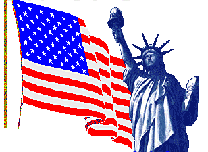|
More information about USA at www.ClearVisionBibleStudies.Com
Simon Greenleaf
Simon Greenleaf (1783-1853), the famous Royall Professor of Law at Harvard, succeeded Justice Joseph Story as the Dane Professor of Law. To the efforts of Story and Greenleaf is to be ascribed the rise of the Harvard Law School to its eminent position among the legal schools of the Unites States. - Wilbur Smith, Therefore Stand: Christian Apologetics (Grand Rapids, MI: Baker Book House). Willard Cantelon, New Money or None? (Plainfield, NJ: Logos International, 1979), p. 243-245. Greenleaf produced a work entitled" A Treatise On the Law of Evidence, still considered to be the greatest single authority on evidence in the entire literature of legal procedure. Chief Justice Fuller of the United States Supreme Court described Greenleaf by saying, "He is the highest authority in our courts." - Irwin H. Linton, A Lawyer Examines the Bible: A Defense of the Faith (Grand Rapids, MI: Baker Book House, 1977), p. 36. Willard Cantelon, New Money or None? (Plainfield, NJ: Logos International, 1979), p. 244. In correspondence with the American Bible Society, Cambridge, November 6, 1852, Simon Greenleaf wrote: "Of the Divine character of the Bible, I think, no man who deals honestly with his own mind and heart can entertain a reasonable doubt, For myself, I must say, that having for many years made the evidences of Christianity the subject of close study, the result has been a firm and increasing conviction of the authenticity and plenary inspiration of the Bible. It is indeed the Word of God." - November 6, 1852, in correspondence with the American Bible Society, Cambridge. Stephen Abbott Northrop, D.D., A Cloud of Witnesses (Portland, Oregon: American Heritage Ministries, 1987), p. 198. In his A Treatise on the Law of Evidence, Simon Greenleaf propounded: "If a close examination of the evidences of Christianity may be expected of one class of men more than another, it would seem incumbent upon lawyers who make the law of evidence one of our peculiar studies. Our profession leads us to explore the mazes of falsehood, to detect its artifices, to pierce its thickest veils, to follow and expose its sophistries, to compare the statements of different witnesses with severity, to discover truth and separate it from error." - Simon Greenleaf, A Treatise on the Law of Evidence (New York: Arno Press), p. 13. Willard Cantelon, New Money or None? (Plainfield, NJ: Logos International, 1979), p. 244. "The religion of Jesus Christ... not only solicits the grave attention of all, to whom its doctrines are presented, but it demands their cordial belief as a matter of vital concernment. These are no ordinary claims; and it seems hardly possible for a rational being to regard them with even a subdued interest; much less to treat them with mere indifference and contempt." "If not true, they are little else then the pretensions of a bold imposter... but if they are well founded and just they can be no less than the high requirements of heaven, addressed by the voice of God to the reason and understanding of man... such was the estimate taken of religion, even the religion of pagan Rome, by one of the greatest lawyers of antiquity, when he argued that it was either nothing at all or everything." - Simon Greenleaf, A Treatise on the Law of Evidence (New York: Arno Press), p. 13. Willard Cantelon, New Money or None? (Plainfield, NJ: Logos International, 1979), p. 244-245 In reference to the apostles, Greenleaf said: "They had every possible motive to review carefully the grounds of their faith, and the evidences of the great facts and truths which they asserted.... And their writings show them to have been men of vigorous understandings. If then, their testimony was not true, there was no possible motive for this fabrication." - Ibid. In his work entitled Examination of the Testimony of the Four Evangelists by the Rules of Evidence Administered in Courts of Justice, with an Account of the Trial of Jesus, Simon Greenleaf stated: "The Character they portrayed is perfect. It is the character of a sinless Being - One supremely wise and supremely good...." The doctrines and precepts of Jesus are in strict accordance with the attributes of God, agreeable to the most exalted ideas which we can form of them, from reason or revelation. They are strictly adapted to the capacities of mankind, and yet are delivered with a simplicity wholly Divine. 'He spake as never man spake.' He spake with authority, yet addressed Himself to the reason and understanding of men, and He spake with wisdom which men could neither gainsay nor resist." - Examination of the Testimony of the Four Evangelists by the Rules of Evidence Administered in Courts of Justice, with an Account of the Trial of Jesus. Stephen Abbott Northrop, D.D., A Cloud of Witnesses (Portland, Oregon: American Heritage Ministries, 1987), p. 198-9.
www.ClearVisionBibleStudies.Com |
